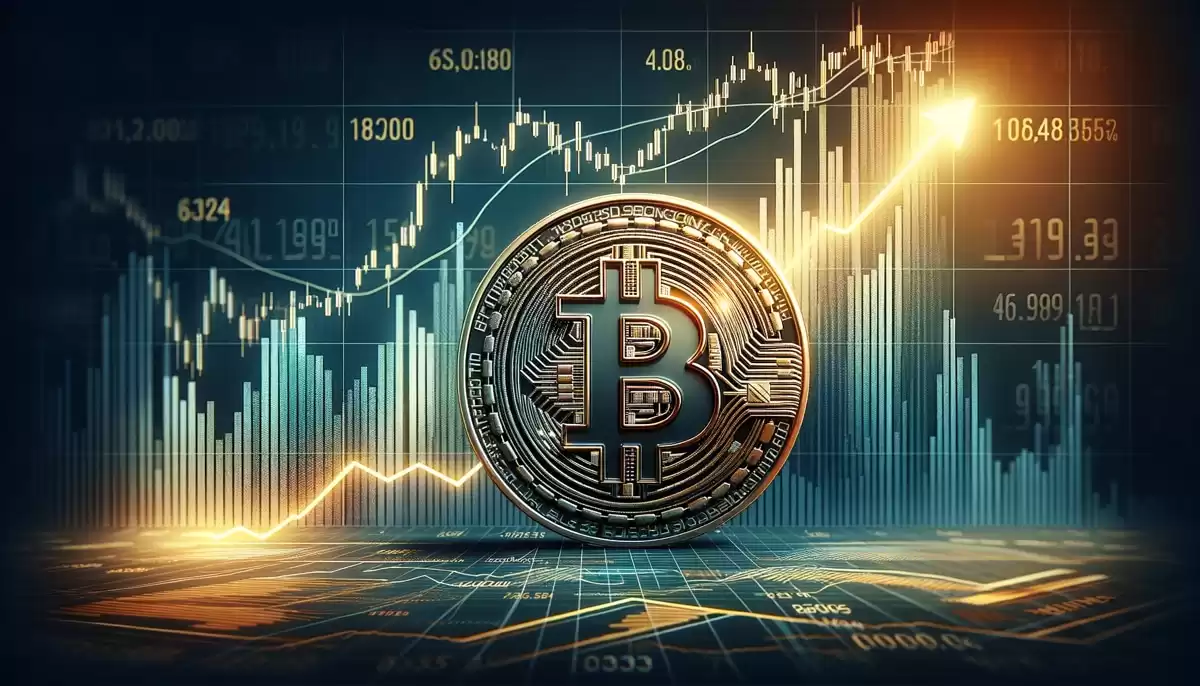-
 bitcoin
bitcoin $87959.907984 USD
1.34% -
 ethereum
ethereum $2920.497338 USD
3.04% -
 tether
tether $0.999775 USD
0.00% -
 xrp
xrp $2.237324 USD
8.12% -
 bnb
bnb $860.243768 USD
0.90% -
 solana
solana $138.089498 USD
5.43% -
 usd-coin
usd-coin $0.999807 USD
0.01% -
 tron
tron $0.272801 USD
-1.53% -
 dogecoin
dogecoin $0.150904 USD
2.96% -
 cardano
cardano $0.421635 USD
1.97% -
 hyperliquid
hyperliquid $32.152445 USD
2.23% -
 bitcoin-cash
bitcoin-cash $533.301069 USD
-1.94% -
 chainlink
chainlink $12.953417 USD
2.68% -
 unus-sed-leo
unus-sed-leo $9.535951 USD
0.73% -
 zcash
zcash $521.483386 USD
-2.87%
What to do if Bitcoin contracts default
When a Bitcoin contract defaults, promptly consult legal counsel to understand your rights and explore options for resolution, including communication, evidence gathering, and alternative dispute resolution methods.
Nov 23, 2024 at 12:58 pm

With the increasing popularity of Bitcoin, more businesses and individuals are using it for transactions and investments. However, like any other financial instrument, there is always a risk of default. If a Bitcoin contract defaults, it can have significant financial consequences for both parties involved. In this article, we will explore the steps that you can take if a Bitcoin contract defaults.
Understanding Bitcoin Contracts:Before we delve into the steps involved in dealing with a Bitcoin contract default, it is essential to understand the nature of these contracts. Bitcoin contracts are legally binding agreements between two or more parties to exchange Bitcoin at a specified price and time. These contracts can be used for various purposes, such as hedging against price fluctuations, speculating on the value of Bitcoin, or facilitating business transactions.
Types of Bitcoin Contract Defaults:There are two main types of Bitcoin contract defaults:
- Buyer Default: This occurs when the buyer fails to fulfill their obligation to purchase the agreed-upon amount of Bitcoin at the specified price.
- Seller Default: This occurs when the seller fails to fulfill their obligation to deliver the agreed-upon amount of Bitcoin at the specified price.
In the event of a Bitcoin contract default, it is crucial to take the following steps:
1. Consult Your Legal Counsel:Seeking legal advice is essential to understand your rights and options under the contract and applicable laws. Your attorney can review the contract, advise you on your legal recourse, and represent you in any legal proceedings.
2. Communicate with the Defaulting Party:Contact the defaulting party promptly to communicate your awareness of the default and to inquire about their reasons for failing to fulfill their obligations. Clear and open communication may lead to a resolution or provide valuable information for further action.
3. Gather Evidence:Document all relevant information related to the contract default, including the contract itself, communications with the defaulting party, and any evidence of their inability to fulfill their obligations. This documentation will be crucial for pursuing legal remedies or insurance claims.
4. Explore Settlement Options:Prior to initiating legal proceedings, consider exploring alternative dispute resolution (ADR) methods, such as arbitration or mediation. ADR can offer a faster, more cost-effective, and less adversarial approach to resolving the dispute.
5. File a Lawsuit:If all other options have been exhausted, you may need to file a lawsuit to enforce your rights under the contract. This should be considered a last resort due to the potential for lengthy and costly legal proceedings.
6. File an Insurance Claim:If you have purchased insurance to cover potential losses from Bitcoin contract defaults, you can file a claim with your insurance provider. The insurance claim process will involve providing documentation of the default and demonstrating that the loss falls within the coverage of your policy.
7. Consider Resolving the Default:In some cases, it may be possible to resolve the default without resorting to legal action. For example, the defaulting party may be able to provide satisfactory compensation or alternative arrangements to fulfill their obligations.
8. Manage Risk and Prevent Future Defaults:To minimize the risk of Bitcoin contract defaults in the future, it is essential to conduct thorough due diligence on potential counterparties, use clear and specific contracts, and consider using dispute resolution mechanisms such as arbitration clauses.
Conclusion:Handling a Bitcoin contract default can be a complex and stressful process. By following these steps and seeking appropriate legal and financial advice, you can protect your interests and navigate the situation effectively.
Disclaimer:info@kdj.com
The information provided is not trading advice. kdj.com does not assume any responsibility for any investments made based on the information provided in this article. Cryptocurrencies are highly volatile and it is highly recommended that you invest with caution after thorough research!
If you believe that the content used on this website infringes your copyright, please contact us immediately (info@kdj.com) and we will delete it promptly.
- IREN Stock Takes a Wall Street Hit After Earnings Miss, But AI Pivot Sparks Fierce Debate
- 2026-02-07 01:05:02
- Wall Street, Tech Stocks, and Bitcoin: Navigating Volatility and Shifting Sands
- 2026-02-07 01:00:01
- Meme Coins Redux: Maxi Doge Flexes for 2026, Rewriting the Playbook for Digital Gold Rush
- 2026-02-07 00:55:01
- Bitcoin's Bearish Rebound: Crypto Fear Grips Market Amidst ETF Outflows and Meme Coin Frenzy
- 2026-02-06 22:30:02
- Ms. Rachel Controversy Highlights Complexities of Antisemitism, Anti-Zionism, and Bigotry Online
- 2026-02-06 22:30:02
- A Royal Ruckus Down Under: Queen Elizabeth II Coin Portrait Stirs Debate in Australia
- 2026-02-06 22:25:01
Related knowledge

How to Use Price Action Trading for Crypto Perpetual Contracts?
Feb 06,2026 at 03:20pm
Understanding Price Action Fundamentals1. Price action trading relies entirely on raw market data—candlestick formations, support and resistance level...

How to Manage Emotions and "Revenge Trading" in Futures?
Feb 05,2026 at 12:19am
Understanding Emotional Triggers in Futures Markets1. Market volatility directly impacts psychological states, often amplifying fear or euphoria based...

How to Use Candle Close Confirmation for Futures Entry?
Feb 05,2026 at 04:20pm
Understanding Candle Close Confirmation1. A candle close confirmation occurs when the final price of a candlestick settles beyond a predefined level, ...

How to Master "Position Sizing" to Prevent Total Account Wipeout?
Feb 06,2026 at 12:00am
Market Volatility Patterns1. Bitcoin price swings often exceed 10% within a 24-hour window during high-liquidity events such as ETF approval announcem...

How to Analyze Market Sentiment Using the Fear and Greed Index?
Feb 05,2026 at 07:40am
Understanding the Fear and Greed Index1. The Fear and Greed Index is a composite metric designed to quantify prevailing emotional states among cryptoc...

How to Secure Your Futures Account with Anti-Phishing Codes?
Feb 05,2026 at 08:40pm
Understanding Anti-Phishing Codes in Crypto Futures Trading1. Anti-phishing codes are unique alphanumeric strings generated by futures exchanges to au...

How to Use Price Action Trading for Crypto Perpetual Contracts?
Feb 06,2026 at 03:20pm
Understanding Price Action Fundamentals1. Price action trading relies entirely on raw market data—candlestick formations, support and resistance level...

How to Manage Emotions and "Revenge Trading" in Futures?
Feb 05,2026 at 12:19am
Understanding Emotional Triggers in Futures Markets1. Market volatility directly impacts psychological states, often amplifying fear or euphoria based...

How to Use Candle Close Confirmation for Futures Entry?
Feb 05,2026 at 04:20pm
Understanding Candle Close Confirmation1. A candle close confirmation occurs when the final price of a candlestick settles beyond a predefined level, ...

How to Master "Position Sizing" to Prevent Total Account Wipeout?
Feb 06,2026 at 12:00am
Market Volatility Patterns1. Bitcoin price swings often exceed 10% within a 24-hour window during high-liquidity events such as ETF approval announcem...

How to Analyze Market Sentiment Using the Fear and Greed Index?
Feb 05,2026 at 07:40am
Understanding the Fear and Greed Index1. The Fear and Greed Index is a composite metric designed to quantify prevailing emotional states among cryptoc...

How to Secure Your Futures Account with Anti-Phishing Codes?
Feb 05,2026 at 08:40pm
Understanding Anti-Phishing Codes in Crypto Futures Trading1. Anti-phishing codes are unique alphanumeric strings generated by futures exchanges to au...
See all articles










































































